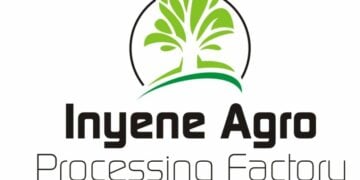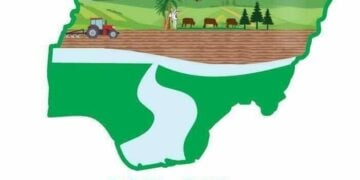In the face of growing public skepticism surrounding genetically modified organisms (GMOs), a team of distinguished professors and scientists from the Institute for Agricultural Research (IAR), Ahmadu Bello University, Zaria, Kaduna State, has reassured Nigerians of the safety and benefits of Tela maize, a genetically modified crop developed to tackle specific agricultural challenges.
During a courtesy visit to the LEADERSHIP Newspapers Group headquarters in Abuja on Tuesday, the delegation led by a representative of the IAR Chairman, Dr Lucius Bamaiyi, said the Institute’s visit was aimed at demystifying misconceptions and misinformation about GMOs, particularly about the controversial Tela maize.
Dr. Bamaiyi outlined the IAR’s core mandate, which includes developing high-yielding and drought-resistant crop varieties tailored to Nigeria’s agricultural needs. He described Tela maize as a product of modernisation and scientific innovation, designed to address persistent issues such as pest infestations and changing climatic conditions.
“Tela maize is not just about improving food security; it is about safeguarding the livelihoods of farmers, enhancing productivity, and addressing the specific threats posed by fall armyworms, stem borers, and recurrent drought,” he stated.
Also speaking during the visit, Professor Muyideen Oyekunle, a plant breeder and one of the lead researchers on the Tela maize project, traced the development of the crop from its inception in 2019. He stressed that after years of rigorous scientific trials, risk assessments, and regulatory scrutiny, the maize has been certified safe for human consumption and the environment.
“Our research has been thorough, evidence-based, and in alignment with global safety standards. The fear-mongering around GMOs is largely uninformed. Tela maize has passed all necessary biosafety evaluations, and we can confidently say it poses no harm to human health,” Prof. Oyekunle asserted.
Prof. Memuma Abdulmalik, another expert from the Institute, corroborating this position, explained that the genetic modification involved in developing Tela maize was specifically targeted at neutralising key agricultural threats, particularly pest infestations and drought. According to her, these modifications do not alter the nutritional composition or safety of the crop.
“The sole aim of Tela maize’s genetic enhancement is to protect crops from armyworm and stem borer and to boost drought tolerance, nothing more. The modification does not introduce any harmful element to the maize or pose any danger to the environment,” she clarified.
Prof. Shehu Ado further noted that adopting Tela maize significantly reduces the need for chemical insecticides and pesticides and often poses greater health and environmental risks than crops. “By reducing the reliance on harmful agrochemicals, Tela maize contributes to a more sustainable and eco-friendly agricultural system,” he added.
The experts also pointed out that misinformation about GMOs has stalled the adoption of life-saving agricultural innovations in Nigeria and urged the media to disseminate accurate, science-based information proactively.
Tela maize, developed under the African Agricultural Technology Foundation (AATF)-led Tela Maize Project in collaboration with IAR and other stakeholders, continues to undergo multi-location field trials and is currently approved for cultivation in several regions in Nigeria.
As public debates around genetically modified crops continue, the IAR team reaffirmed its commitment to transparency, safety, and delivering solutions that empower farmers and ensure national food security.





